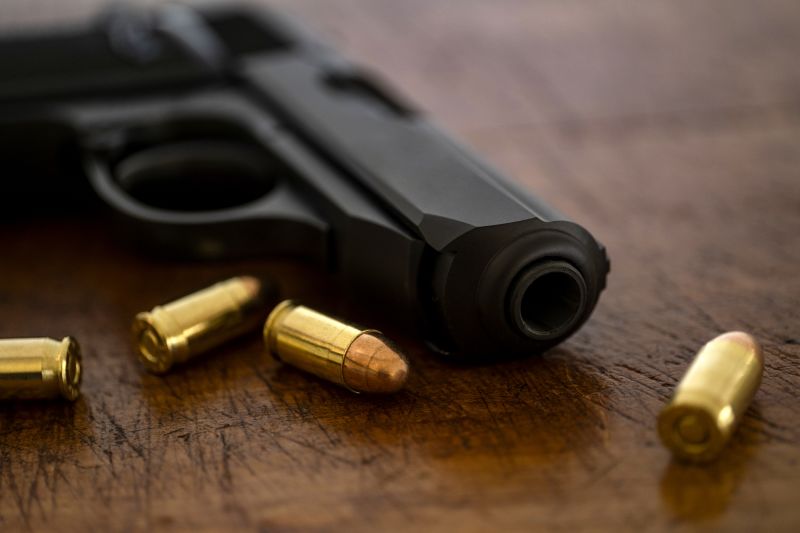More Americans own guns for personal protection than ever before, a new survey shows.
Gun sales surged during the Covid-19 pandemic, as did gun-related deaths. In 2021, 48,830 people died from gun-related injuries in the US, the highest number on record. Roughly 7.5 million American adults became new gun owners during the pandemic, and most of them had previously lived in a home without a gun, according to data from the 2021 National Firearms Survey.
In the new survey, which was published Thursday in the journal Injury Prevention, researchers queried a nationally representative sample of nearly 2,500 American adults who reported owning guns between May and June 2023.
Nearly 80% said they were motivated to get a firearm for personal protection, a proportion that appears to have risen over the past 25 years. No single study has tracked the reasons for gun ownership over time, making comparisons inexact, but similar studies have found that about 26% of Americans reported owning a gun for protection in 1999. Various studies suggest that between 60% and 70% of gun owners said protection was their main motivation for having a firearm from 2017 through 2021.
It’s a trend that has roots in the social upheaval of the 1960s, said Dr. David Yamane, a professor of sociology at Wake Forest University who studies gun culture in the United States and who was not involved in the survey.
“It was a time of profound social unrest and social uncertainty, lots of political movements, cultural change, foreign threats, people listening to crazy music, you know, ‘sex, drugs and rock n’ roll,’ political assassination, riots or protest movements in some cities,” said Yamane, who owns a gun and who financially supports organizations that promote gun ownership.
In some ways, the years of the pandemic mirrored the social movements of the 1960s.
“If you think about the year of 2020, it really had some of those characteristics,” Yamane said. “There was Covid, which rolls immediately into the murder of George Floyd and the Black Lives Matter protests, which rolls immediately then into an insane presidential election that rolls immediately into the insurrection at the Capitol.”
People began to be worried about personal safety, he said, and carrying a gun became a way for many to deal with the uncertainty of the times. Yamane said that change fanned the flames of a defensive gun culture.
Since at least the 1980s, the gun industry has also promoted the idea of using guns for personal protection and advocated for the passage of so-called “stand your ground” laws , which permit the use of deadly force if a person is defending themselves.
However, research shows that people who own guns or live with gun owners are generally less safe than people who do not.
“Despite widespread perceptions that a gun in the home provides security benefits, nearly all credible studies to date suggest that people who live in homes with guns are at higher — not lower — risk of dying by homicide,” Dr. David Studdert, a professor of health policy at the Stanford University School of Medicine, said in a 2022 news release about his research on the topic.
In 2022, Studdert led a study that found that people who lived with gun owners but didn’t own a gun themselves were seven times more likely to be shot and killed by a spouse or romantic partner compared to people who did not live with gun owners.
Additionally, data from the National Crime Victimization Survey shows that guns are rarely used in self-defense during personal contact crimes.
The new survey, which was led by researchers at the Institute for Firearm Injury Prevention at the University of Michigan in Ann Arbor, set out to see whether the motivations and ownership of guns varied depending on whether a state had a “stand your ground” law.
Of the 2,477 gun-owning adults who responded to the survey, 79% reported protection as the most important reason for owning a firearm, and 52% reported carrying a firearm outside their home within the past year for reasons excluding work, hunting or target shooting.
The study did not find that people were more likely to carry a gun for protection in states with “stand your ground” laws, but gun owners in those states were more likely to carry outside the home. Yamane pointed out that only about 5% of people who said they carried a gun for protection reported carrying it outside their home.
“A lot of those people are hunting, they are going to the range, whatever,” he said.
Gender as well as ethnicity and race were strong predictors of whether a person carried a gun for protection, while political affiliation was not. Women, Black and Hispanic people were more likely to say they owned a gun for protection than for other reasons. Nearly all Black and Asian women who owned guns – 98% – said they carried that weapon for protection.
